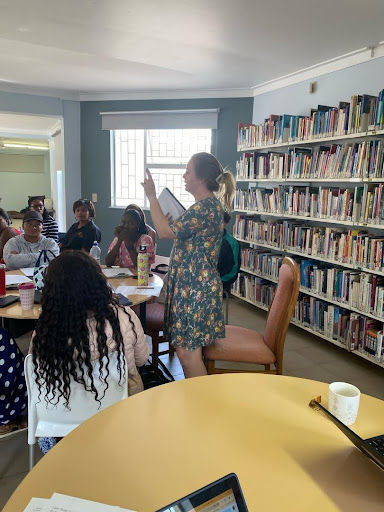Nurturing Inquirers: Fostering Curiosity and Lifelong Learning at WIS Primary
- Windhoek International School
- Sep 1, 2023
- 3 min read
Dear WIS Community,
One aspect of an IB education is its power to inspire and cultivate internationally-minded learners. At WIS, we hold this value close to our hearts, and an important part of the International Baccalaureate (IB) is the Learner Profile. This profile consists of a set of attributes that embody the essence of an internationally-minded individual. In the Primary at WIS this year, we are doing a monthly deep-dive into each Learner Profile Attribute. This month, we are exploring the "Inquirer" attribute.
What Does it Mean to Be an Inquirer?
Being an inquirer is more than just asking questions; it's about cultivating a deep sense of curiosity and a thirst for knowledge. An inquirer actively seeks answers, explores possibilities, and engages with the world with an open and inquisitive mind. This quality is not only crucial for academic success but also for personal growth. When we encourage students to be inquirers, we are nurturing a lifelong love of learning. This week in Grade 3 we had the perfect example of how we might do this- We had Dr. Natasha Tjongorero, a radiologist, explain and show the Grade 3's different organs via a portable ultrasound machine for their body systems unit.

Why is Inquiry Important for Learning?
Curiosity is the driving force behind learning. The act of asking questions sparks a natural process of seeking answers, which in turn leads to the acquisition of new knowledge and skills. In the Primary Years Programme (PYP), we harness the power of student questions to guide their learning experiences. This approach empowers students to take ownership of their learning and fuels their passion for exploring the unknown. Teachers try to get students curious at the start of a unit of inquiry by collecting all students’ questions after a provocation, a learning experience to get them thinking. Instead of instructing students with ‘we are learning about hibernation’, we can pique their curiosity by saying ‘Where do bears go in winter?’

Check out some questions WIS students and staff members shared with us during assembly:
Nurturing Inquirers at Home
As parents, you play an essential role in fostering the spirit of inquiry in your child's life. Here are a few ways you can nurture this vital Learner Profile attribute at home:
1. Take an Inquiry Stance
Embrace a learning mindset alongside your child. You don't have to be an expert; being a fellow learner can be just as valuable. Show that it's okay not to have all the answers and demonstrate how you approach learning by saying, "I don't know, let's figure this out together!"
2. Meet a Question with a Question
When your child comes to you with a question, consider responding with a question of your own: "That's a great question! How could we find the answer?" Encourage them to think about ways to explore and discover on their own.
3. Inquire Together
Hands-on discovery is invaluable for young minds. Engage in simple experiments and activities that encourage investigation, such as exploring light and colours or experimenting with basic shapes. The goal is to develop their skills as independent, lifelong learners.
4. Use Open-Ended Questions
Incorporate open-ended questions into your conversations with your child. Encourage them to share what they notice, think, and feel about various topics. This practice nurtures creativity, curiosity, and critical thinking.
By nurturing your child's inquisitive nature, you are laying the foundation for a lifelong love of learning and exploration.
Stay curious, WIS community!
Warm regards,
Marcelle van Leenen
Primary Principal
Reminder Here are a few reminders in the interest of efficiency and safety. Thank you very much for your support in keeping WIS a safe place!
Leaving school early process
Longer absences
|








Comments